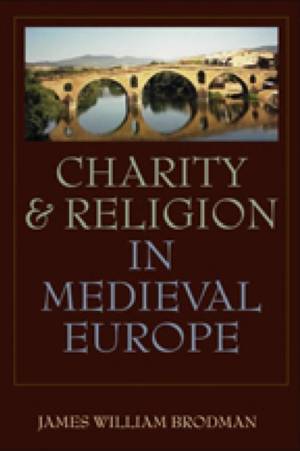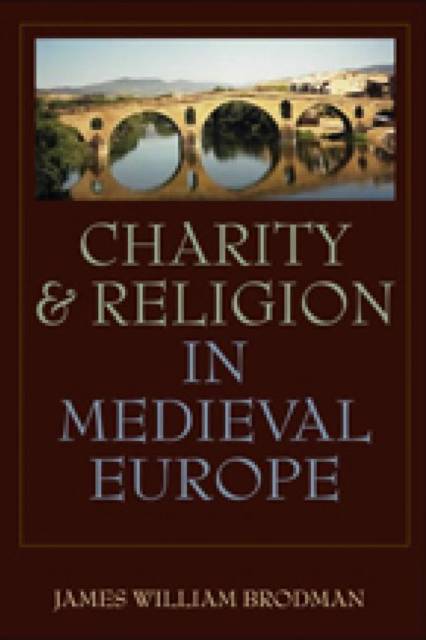
- Retrait gratuit dans votre magasin Club
- 7.000.000 titres dans notre catalogue
- Payer en toute sécurité
- Toujours un magasin près de chez vous
- Retrait gratuit dans votre magasin Club
- 7.000.000 titres dans notre catalogue
- Payer en toute sécurité
- Toujours un magasin près de chez vous
Description
Benevolence toward the poor in medieval Europe rested upon ideological foundations established by Christianity and was practiced by a diverse body of clerics and lay people. Charity and Religion in Medieval Europe is the first comprehensive study of the ideas that underlie medieval generosity and of the institutions created to serve the poor. It traces the roots of this liberality to the patristic era and demonstrates how the ideas of twelfth-century reformers, especially Pope Innocent III, broadened and deepened society's commitment to the downtrodden.
In successive chapters, the informative study outlines the charitable practices of monasteries, bishops and their chapters, and individual clerics and lay people. It also chronicles the emergence of specialized religious orders that sheltered pilgrims, ransomed captives, tended to victims of skin diseases, cared for orphans and the sick, and attempted the reform of prostitutes. A chapter devoted to lay charity demonstrates how an ideal of practical sanctity helped to promote acts of generosity within parishes, confraternities, and various types of lay ascetical associations. Within hospitals and other institutions of charity, traditional religious practice was modified and adapted to provide a spiritual and corporate framework for the women and men who actually served the poor. Furthermore, within such institutions, the spiritual needs of patients were paramount, and so provision of the sacraments and religious burial was as important as ameliorative or palliative care that was provided to the poor.
The book challenges conventional views of medieval piety by demonstrating how the ideology of charity and its vision of the active life provided an important alternative to the ascetical, contemplative tradition emphasized by most historians. By bridging the divide that often separated lay people from clergy, religious charity provided an arena of action within which all medieval Christians could fully participate.
"Charity and Religion in Medieval Europe is an excellent storehouse of information about medieval charitable theory and practice. It is remarkably analytical, critical, and skeptical of larger theories and claims about medieval charity."--Philip Gavitt, Saint Louis University
ABOUT THE AUTHOR:
James William Brodman, professor of history at the University of Central Arkansas, is the author of numerous articles and books including, Charity and Welfare: Hospitals and the Poor in Medieval Catalonia and Ransoming Captives in Crusader Spain.
PRAISE FOR THE BOOK:
"In all, this impressive study illustrates the variety and diffusion of caritative institutions across Latin Christendom, from the patristic to late medieval eras. . . . Brodman manages to open a window onto many theological, canonical, institutional, and societal transformations affecting medieval charity." -- Kriston Rennie, Journal of Church History
"This is an important book. . . . Charity and Religion is a remarkable achievement and an excellent narrative of the evolution of charity over the longue institutional duree."--Teofilo F. Ruiz, Speculum
"James William Brodman presents a comprehensive, precise, and informative survey of organized charity in the Middle Ages. . . . [The book] is bound together by a strong thread and the conclusions are trenchant. . . . [T]hose who tackle such subjects will turn eagerly to Brodman's handy survey in search of background and perspective; historians of charity often mistake for innovations things with medieval precedents, and his work will save them from many errors."--Brian Pullan, American Historical Review
Spécifications
Parties prenantes
- Auteur(s) :
- Editeur:
Contenu
- Nombre de pages :
- 318
- Langue:
- Anglais
Caractéristiques
- EAN:
- 9780813215808
- Date de parution :
- 07-04-09
- Format:
- Livre relié
- Format numérique:
- Genaaid
- Dimensions :
- 147 mm x 221 mm
- Poids :
- 589 g







